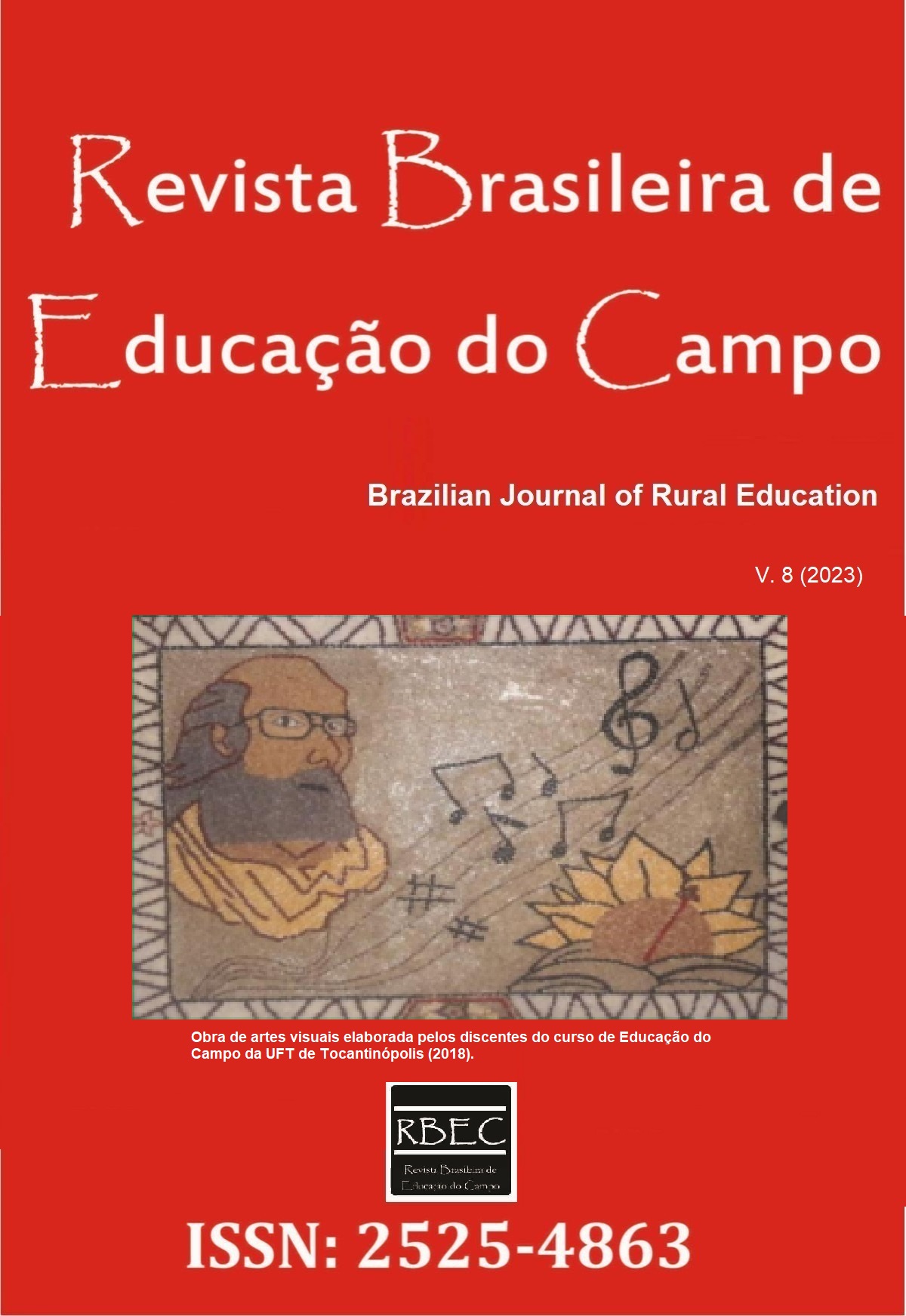Culture in Child Education: brief reflections on a field of contested conceptions
DOI :
https://doi.org/10.20873/uft.rbec.e15635Résumé
ABSTRACT. This article is the result of bibliographic research conducted during the specialization course in Early Childhood Education at the Universidade Federal do Norte do Tocantins, Tocantinópolis Center, whose goal was to reflect on the insertion of the culture of writing in early childhood education. The study was justified by the need for theoretical support on the process of insertion of the culture of writing, especially in the lives of children in the early stages of schooling. The theme in question is necessary and relevant for all those involved in education, especially educators who work with children aged 4, 5, and 6, in early childhood education and in the early years of elementary school, since it enables the understanding of fundamental concepts for the insertion of the child in this culture. The results obtained in the research consider that children's learning, development, and knowledge related to writing in Early Childhood Education must be understood and carried out as a process, in constant evolution. More than ever, it is necessary to overcome the conception of a ready-made, finished, only transmitted knowledge, and to establish the commitment to form people who are competent for life, able to solve problems; that is, to understand, to intervene, to transform, to modify, to respect, to seek and to act in reality, by means of their potentialities and countless languages.
Téléchargements
Références
Baptista, M. C. (2010). A linguagem escrita e o direito à educação na primeira infância. In Anais do I Seminário Nacional: Currículo em Movimento - Perspectivas Atuais. Belo Horizonte.
Brasil. (2018). Base Nacional Comum Curricular. MEC, Brasília.
Brasil. (2009). Ministério da Educação. Secretaria de Educação Básica. Diretrizes curriculares nacionais para a educação infantil. Brasília: MEC, SEB.
Brasil. (1996). Lei nº 9.394, de 20 de dezembro de 1996. Estabelece as diretrizes e bases da educação nacional. Recuperado de: www.planalto.gov.br/ccivil_03/Leis/L9394.htm. Acesso em 05/03/2022.
Brasil. (1998). Referencial curricular nacional para a educação infantil. Ministério da Educação e do Desporto. Secretaria de Educação Fundamental. Brasília: MEC/SEF, 1998.
Ferreiro, E. (1985). A representação da linguagem e o processo de alfabetização. Caderno de Pesquisa, (52), 7-17.
Ferreiro, E., & Teberosk, A. (1985). A Psicogênese da Língua Escrita. Porto Alegre: Artes Médicas.
Morin, E. (2006). Introdução ao pensamento complexo. Porto Alegre: Sulina.
Morin, E. (2000). Os sete saberes necessários à educação do futuro. 2. ed. São Paulo: Cortez; Brasília, DF: UNESCO.
Téléchargements
Publié-e
Comment citer
Numéro
Rubrique
Licence
© Thalita Melo de Souza Medeiros, Gustavo Cunha de Araújo 2023

Cette œuvre est sous licence Creative Commons Attribution 4.0 International.
Proposal for Copyright Notice Creative Commons
1. Policy Proposal to Open Access Journals
Authors who publish with this journal agree to the following terms:
A. Authors retain copyright and grant the journal right of first publication with the work simultaneously licensed under the Creative Commons Attribution License that allows sharing the work with recognition of its initial publication in this journal.
B. Authors are able to take on additional contracts separately, non-exclusive distribution of the version of the paper published in this journal (ex .: publish in institutional repository or as a book), with an acknowledgment of its initial publication in this journal.
C. Authors are permitted and encouraged to post their work online (eg .: in institutional repositories or on their website) at any point before or during the editorial process, as it can lead to productive exchanges, as well as increase the impact and the citation of published work (See the Effect of Open Access).














